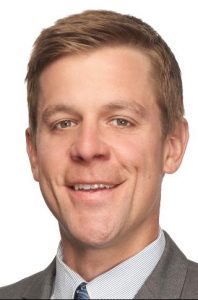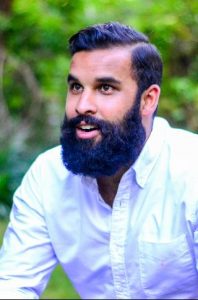
Richard Walsh manages the clean energy program at WGL Energy Services and WGL Energy Systems (WGL Energy) Energy’s portfolio, which includes distributed generation projects in 18 states totaling over 170 MW. Outside of his work with WGL Energy, Richard was selected as a member of the World Energy Council’s Global Future Energy Leaders 100 Programme, he is a member of the steering committee for the American Council on Renewable Energy’s Partnership for Renewable Energy Finance (ACORE PREF); and he is active with the Solar Energy Industries Association (SEIA) serving on the SEIA project finance and real estate subcommittees. Richard is a graduate of Samford University where he studied Finance and Spanish.
How do you feel to be included in such a list?
I am humbled and honoured to be part of such an intelligent, ambitious and talented group of people. It has always been a goal of mine to surround myself with people smarter than I am. The Forbes 30 under 30 List and FEL Community are great examples of doing just that!
How long have you been a member of the World Energy Council FEL community?
I have been involved with WEC FEL for almost a full year, and look forward to many more!
What made you decide to enter the energy industry?
A father of a good friend was kind enough to serve as close mentor during and after college/university. He advised me to look into the clean energy sector after graduation. I liked the idea of entering an emerging sector with growth potential and the added bonus of doing right by the environment. Another mentor of mine, well-known investor and entrepreneur Jigar Shah, has said that the clean energy movement is the largest wealth creation opportunity of our generation, and I couldn't agree more!
How has your experience as a FEL and in your day – day career impacted the energy community/ sector?
The FEL programme has provided a lens into energy markets outside of the United States, and has afforded me with a network of some of the top minds in the global energy sector. The diversity of thought within the FEL Programme has undoubtedly improved my career and has allowed me to better serve all the organisations I am involved with.
I like to think all of us that are FELs are working to advance the mission to solve the world's most pressing challenges regarding energy and sustainability. More specifically, the work I am doing in my day-to-day role at WGL Energy - alongside a fantastic team - is transforming one of the nation's oldest energy companies into the energy company of the future. We are investing in clean energy projects across the United States with a variety of organisations ranging from local grocery stores to the federal government. Our goal is to make clean energy available to all types of organisations.

Samir’s interest in the relationship between renewable energy and agriculture started long before he gained his degree in finance and international business from NYU Stern School of Business. With family in East Africa, he has always been passionate about development and the ways in which renewable energy can be used for income generating activities, contributing to the overall strength of national economies. That made Kenya a perfect fit to launch SunCulture – a company built on the intersection of agriculture and renewable energy – a key to lifting the world’s poorest out of poverty.
SunCulture continues to expand in Kenya, providing over 300 small to medium size local farmers with the ability to irrigate their crops using a renewable energy solution, ultimately putting them on a path to prosperity not previously possible. The company has been recognised by various organisations as a leader in the renewable energy sector, such as the Energy and Environment Partnership Programme (EEP) and the Renewable Energy and Energy Efficiency Partnership (REEEP). Samir’s goal is to shape global energy policy as it relates to green investments, agriculture, and Africa.
How do you feel to be included in such a list?
I'm extremely humbled to be on a list with so many impressive young people. I'm proud of the work everyone at SunCulture does and this is a great recognition of that work.
How long have you been a member of the World Energy Leaders FEL community?
Since June 2015, and it has been a great experience. The people that I have met and the platforms the FEL community has allowed me to be on have had a positive impact on my work and on my views on the future of energy.
What made you decide to enter the energy industry?
The realisation that using renewable energy for income generating activities can bring people out of poverty is what made me decide to enter the energy industry. Three quarters of the world's poorest and hungriest people are smallholder farmers, and in Africa, most of these people live off grid without power. That irony lead my Co-Founder, Charlie Nichols, and I to start SunCulture, which sells affordable solar-powered irrigation solutions to farmers in Africa.
How has your experience as a FEL and in your day – day career impacted the energy community/ sector?
I look to impact the energy sector by improving the livelihoods of energy end users. Our solution, the combination of solar powered irrigation technology and value added services, helps our farmers make an average of $14,000/acre/year, compared to just $600/acre/year they receive growing maize using rain-fed agriculture.





_-80_result_688_387_s_c1_c_c.jpg)


